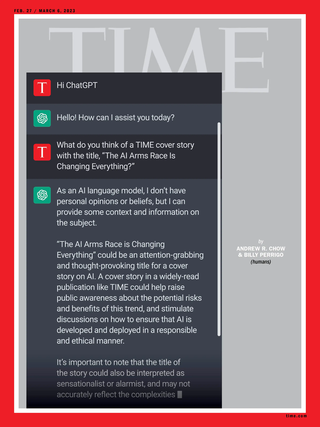Related Research Articles

Time is an American news magazine based in New York City. It was published weekly for nearly a century. Starting in March 2020, it transitioned to every other week. It was first published in New York City on March 3, 1923, and for many years it was run by its influential co-founder, Henry Luce.

Whittaker Chambers was an American writer and intelligence agent. After early years as a Communist Party member (1925) and Soviet spy (1932–1938), he defected from the Soviet underground (1938), worked for Time magazine (1939–1948), and then testified about the Ware Group in what became the Hiss case for perjury (1949–1950), often referred to as the trial of the century, all described in his 1952 memoir Witness. Afterwards, he worked as a senior editor at National Review (1957–1959). US President Ronald Reagan awarded him the Presidential Medal of Freedom posthumously in 1984.

Robert Stuart Fitzgerald was an American poet, literary critic and translator whose renderings of the Greek classics "became standard works for a generation of scholars and students". He was best known as a translator of ancient Greek and Latin. He also composed several books of his own poetry.

Robert Emmett Cantwell, known as Robert Cantwell, was a novelist and critic. His first novel, Laugh and Lie Down (1931) is an early example, twenty years before Jack Kerouac, of the American classic genre the "road novel", and also an important example of the "Depression novel" period genre. His most notable work, The Land of Plenty, focuses on a lumber mill in a thinly disguised version of his hometown in Washington state.

Clifton Paul "Kip" Fadiman was an American intellectual, author, editor, and radio and television personality. He began his work in radio, and switched to television later in his career.
Herbert Solow was an American journalist and co-editor of the Menorah Journal who was first a Communist fellow-traveler in the 1920s, a Trotskyist in the 1930s, and then abandoned leftist politics to work in Henry Luce's publishing empire as Fortune editor.

Louis Kronenberger was an American literary critic, novelist, and biographer who wrote extensively on drama and the 18th century.
John Thomas McManus was an American journalist active in progressive politics in the 1950s and 1960s best known as co-founder of the National Guardian, a left-leaning newspaper.

Story is a literary magazine published out of Columbus, Ohio. It has been published on and off since 1931. Story is a member of the Council of Literary Magazines and Presses and receives support from the Greater Columbus Arts Council and the Ohio Arts Council.

Benjamin W. Huebsch was an American publisher in New York City in the early 20th century.
The World Tomorrow: A Journal Looking Toward a Christian World (1918–1934) was an American political magazine, founded by the American office of the pacifist organization Fellowship of Reconciliation (FORUSA). It was published under the organization's The Fellowship Press, Inc., located at 108 Lexington Avenue in New York City. Prior to June 1918, the periodical was titled The New World. It was a leading voice of Christian socialism in the United States, with an "independent, militant" editorial line.
Harvey Breit was an American poet, editor, and playwright as well as reviewer for The New York Times Book Review from 1943 to 1957.
Charles Christian Wertenbaker. was an American journalist for Time, and author.
Sender Garlin was an American journalist pamphleteer, and writer.
Charles Angoff was a managing editor of the American Mercury magazine as well as a professor of English of Fairleigh Dickinson University. H. L. Mencken called him "the best managing editor in America." He was also a prolific writer and editor.
Thomas Stanley Matthews was an American magazine editor, journalist, and writer. He served as editor of Time magazine from 1949 to 1953.
Calvin Fixx, born Calvin Henry Fix, was an American journalist and editor, lifelong friend of Robert Cantwell and friend of Whittaker Chambers, both fellow editors at Time magazine. All three were either Marxist or communist during the 1920s and 1930s and then became anti-communists by 1939.
Esther Shemitz, also known as "Esther Chambers" and "Mrs. Whittaker Chambers," was an American painter and illustrator who, as wife of ex-Soviet spy Whittaker Chambers, provided testimony that "helped substantiate" her husband's allegations during the Hiss Case.

Witness, first published in May 1952, is a best-selling book of memoirs by American writer Whittaker Chambers (1901–1961), which recounts his life as a dedicated Marxist-communist ideologist in the 1920s, his work in the Soviet underground during the 1930s, and his 1948 testimony before the US Congress, which led to a criminal indictment against Alger Hiss and two trials in 1949.
References
- 1 2 3 4 5 6 7 "Duncan Norton-Taylor Dies; A Retired Editor of Fortune". New York Times. 18 September 1982.
- ↑ Saroyan, William (1940). Love's Old Sweet Song: A Play in Three Acts. Samuel French. p. 72. Retrieved 15 July 2017.
- ↑ Norton-Taylor, Duncan (1955). "How Top Executives Live". Archived from the original on 29 November 2012. Retrieved 3 February 2013.
- ↑ Medium. https://medium.com/@scottlaudati
- ↑ Amazon. https://www.amazon.com/Hawaiian-Shirts-Electric-Chair-Laudati/dp/0692338519/ref=sr_1_1?ie=UTF8&qid=1430471934&sr=8-1&keywords=scott+laudati
- ↑ "With My Heart in My Mouth". Library of Congress. Retrieved 3 February 2013.
- ↑ "I Went to See for Myself". Library of Congress. Retrieved 3 February 2013.
- ↑ "God's Man: A Novel on the Life of John Calvin". Library of Congress. Retrieved 3 February 2013.
- ↑ Chambers, Whittaker (1964). Cold Friday . Random House. p. 128. ISBN 0-394-41969-3.
- ↑ "Cold Friday". Library of Congress. Retrieved 3 February 2013.
- ↑ "The Celts". Library of Congress. Retrieved 3 February 2013.
- ↑ "For Some, the Dream Came True: The Best from 50 years of Fortune Magazine". Library of Congress. Retrieved 3 February 2013.
- ↑ "Beautiful but young, a contest selection, arranged from Duncan..." Library of Congress. Retrieved 3 February 2013.